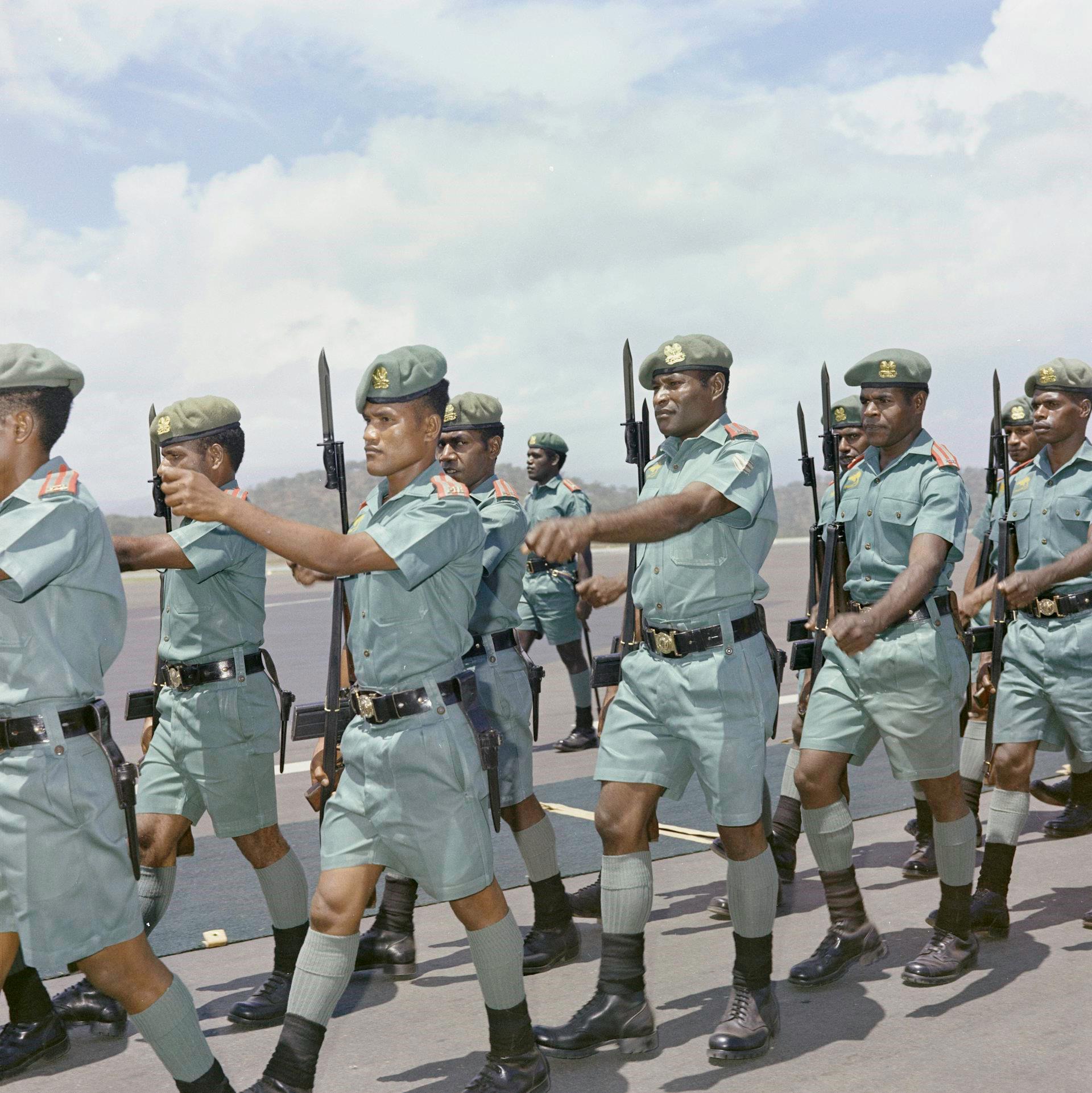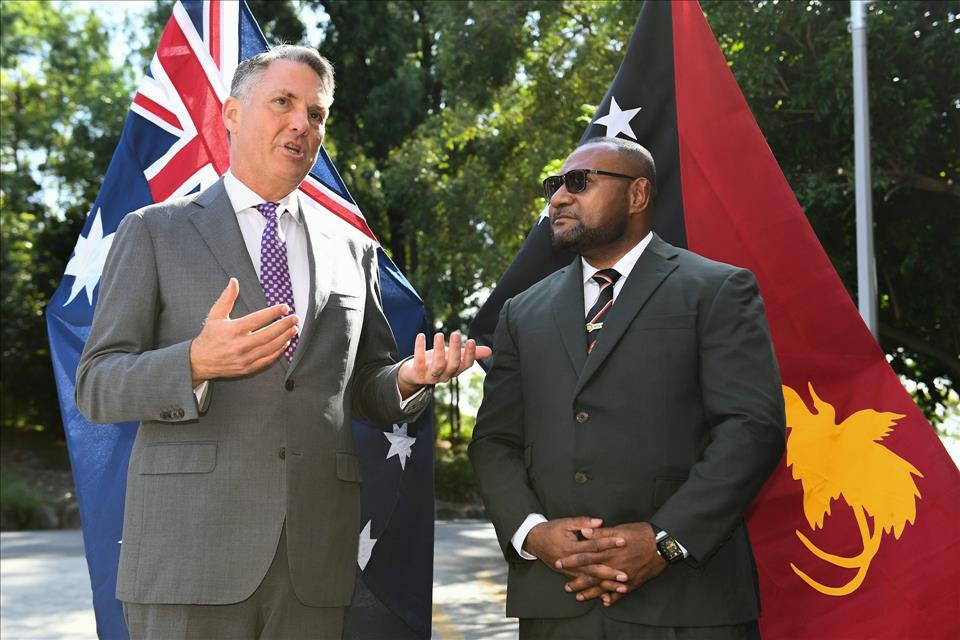
With New PNG Defence Treaty, Australia Is Delivering On Its Rhetoric About Trust At A Critical Time
The treaty, to be signed by Prime Minister Anthony Albanese and his counterpart James Marape in PNG, is expected to provide for closer military integration, mutual consultation on security threats, and a large-scale Australian investment in modernising the PNG Defence Force.
It will also set the framework for Papua New Guineans to serve in the Australian Defence Force on equal terms with Australian soldiers.
The broad thrust of the deal is clear: Australia and PNG are locking in a long-term, formal security partnership at a critical time in the Pacific.
Deep roots in shared historyThe alliance between the two countries can be traced back to 1942, when Papua New Guinean soldiers, carriers, guides and villagers played a decisive role in the Kokoda campaign against invading Japanese forces. That experience imprinted itself deeply on Australia's strategic consciousness and on our sense of obligation to PNG.
Formal defence cooperation began soon after PNG's independence in 1975, with the creation of the Defence Cooperation Program . For nearly five decades, this program has provided training, infrastructure and advisory support. Thousands of PNG officers and enlisted personnel have passed through Australian training institutions, and joint exercises have become routine.

PNG soldiers taking part in ceremonies marking the country's independence in 1975. National Archives of Australia
At times, however, cooperation has been complicated. During the 1990s, when conflict raged on Bougainville, many people in PNG believed Australian-supplied equipment was being used against Bougainvillean separatists.
That perception caused resentment and reminded Canberra that trust in the relationship cannot be taken for granted.
Why this treaty matters nowThe new treaty comes at a significant geo-strategic moment, with China pursuing an expanded role in the Pacific. It has sought to secure a security agreement with Solomon Islands , as well as a region-wide trade and security deal . China is also suspected of playing a role in stalling a security agreement between Australia and Vanuatu .
The unresolved tensions over Indonesian rule in West Papua and Bougainville's continued quest for independence remain potential flashpoints, as well.
For Australia, PNG is not simply a neighbour, but the key to its northern approaches. Defence Minister Richard Marles was blunt this week in describing its geostrategic weight:
For PNG, the treaty provides a clear answer to the question of who its most trusted security partner is.
In an era where Port Moresby has expanded ties with China, the United States, Japan, Indonesia and others, this is no small step. It reflects a calculation that the Australia relationship is unique – the only one that combines proximity, capability and an enduring sense of shared history.
Richard Marles says the new treaty will 'transform the defence relationship' between the two nations. Jono Searle/AAP Partnership and equality
The symbolism of timing this announcement to coincide with this week's independence celebrations is important. Fifty years ago , the Australian flag was peacefully lowered in Port Moresby, an act of trust between then prime minister Gough Whitlam and his PNG counterpart Michael Somare.
The defence treaty likewise needs to be understood in terms of partnership and equality. Albanese has consistently described Australia and PNG as“partners and equals”. That matters, because Papua New Guineans remain sensitive to any hint of condescension in the relationship. A treaty that enshrines mutual consultation rather than one-sided obligation fits that frame.
PNG Defence Minister Billy Joseph has said the treaty will include provisions similar to NATO's Article 4 – requiring consultation on emerging threats – rather than NATO's more binding Article 5 focused on collective defence.
This would allow Australia and PNG to act together when their interests align, but avoids overreach. It also reflects sensitivity to PNG's sovereignty, and to the reality that Australia must not appear to dictate Port Moresby's security choices.
Balancing ambition with realismAllowing Papua New Guineans to serve in the ADF and even acquire Australian citizenship could open new opportunities for young people, but it will need careful management to avoid the hollowing out of the PNG Defence Force.
Australia's promise of billions of dollars in support to modernise PNG's military also carries expectations: PNG will want to see sustained delivery, not just announcements.
There are risks to be managed for Australia, as well. The treaty could, in theory, entangle Canberra in future domestic or regional disputes, from the PNG–Indonesia border to Bougainville. These are sensitive issues, and Canberra will need to tread carefully.
Still, the benefits are clear. By embedding PNG in Australia's strategic orbit, the treaty removes ambiguity about where Port Moresby looks first for security support. It also strengthens regional stability by demonstrating that the Pacific's largest island nation has a reliable partner committed to its success.
A relationship to be nurturedUltimately, treaties and defence hardware are only part of the story. What sustains the relationship is the dense web of personal and institutional ties built over generations – from soldiers on the Kokoda Track to aid workers, teachers, business people, sports teams and families across the Torres Strait.
That connective tissue has sometimes frayed, but it remains unmatched by any other partner. As I have argued elsewhere , Papua New Guineans know Australians well, even if Australians still have much to learn about PNG.
PNG's population is expected to more than double by mid-century, potentially surpassing Australia's. Its choices will shape the Pacific. At 50 years old, PNG is a resilient if often noisy democracy, with its own traditions of negotiation and compromise.
The new defence treaty is therefore not just about military cooperation. It is about recognising PNG as a nation that makes its own strategic decisions. It also ensures Australia is the partner that shows up, delivers and stays the course.
If the Kokoda campaign represents the historical foundation of our defence ties, the treaty marks their modern renewal. It reminds us that in security – as in so many other fields – when Papua New Guineans look for a partner they can trust, they continue to look first to Australia.

Legal Disclaimer:
MENAFN provides the
information “as is” without warranty of any kind. We do not accept
any responsibility or liability for the accuracy, content, images,
videos, licenses, completeness, legality, or reliability of the information
contained in this article. If you have any complaints or copyright
issues related to this article, kindly contact the provider above.


















Comments
No comment